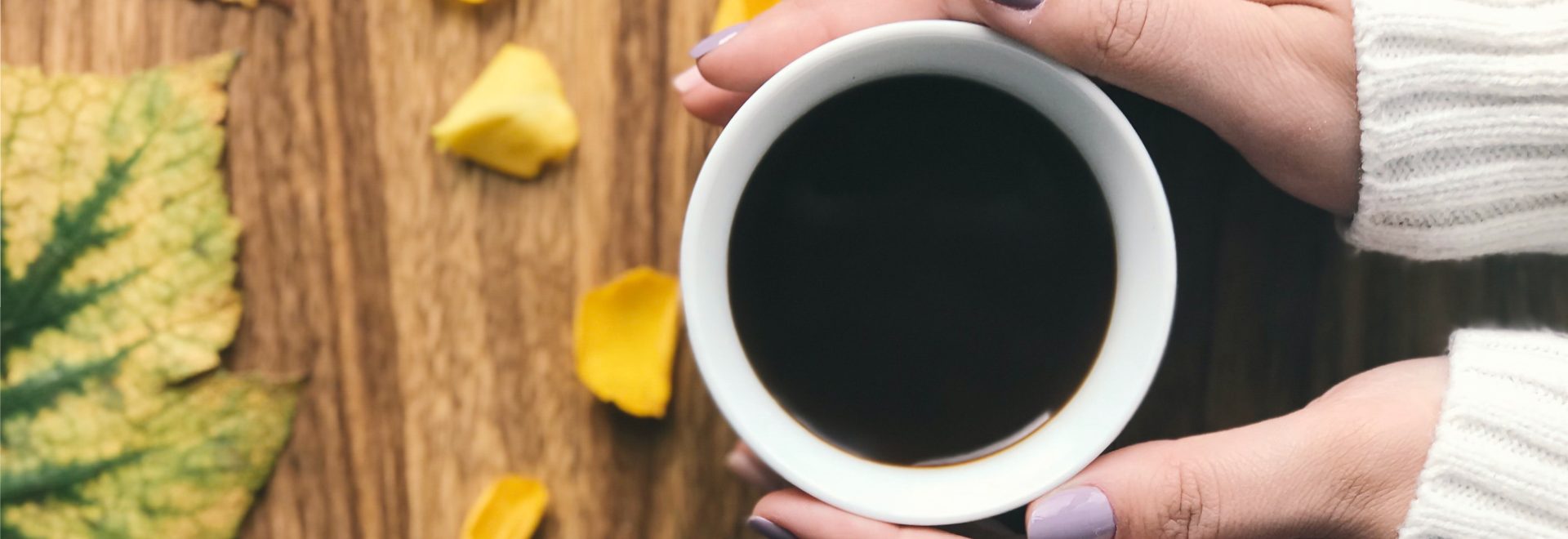Breaking down the science behind “beauty-boosting” coffee
Jess Palmer discusses the rise of beauty-boosting products with Flash Coffee’s Mayuri Raj – and whether enough research exists to support claims.
The stimulating effects of coffee are unarguable. With an average caffeine content of 63mg per espresso shot, numerous studies show that it can significantly increase activity in both the brain and nervous system.
Its health benefits are also well documented. Some research suggests that, when consumed at moderate levels, coffee may lower the risk of developing type 2 diabetes and chronic liver problems, while protecting against cardiovascular diseases.
More recently, however, a number of coffee companies have started to promote the “beauty-boosting” effects of coffee: the idea that coffee could help slow ageing, while promoting hair and skin nourishment.
Not to be confused with adaptogenic coffee (which focuses on performance and brain health), beauty-boosting coffee typically highlights the impact of coffee’s antioxidant content in combination with additional ingredients, such as probiotics or collagen.
“Beauty-boosting coffee often means that ingredients have been added to aid skin or hair health,” says Mayuri Raj, a senior executive at Flash Coffee. Earlier this year, Flash Coffee launched its Collagen Peach Latte in collaboration with beauty brand Kinohimitsu Singapore.
Claiming to “actively repair damaged collagen fibres” and reduce “fine lines, wrinkles, and dryness”, the ready to drink (RTD) coffee contains 5,300mg of marine collagen peptide per bottle. Marine collagen peptides are a health ingredient made from fish and used in a variety of health and beauty products.
But while brands such as Flash Coffee are sure of the benefits of beauty-boosting products, does the science support the claims?
The rise of beauty-boosting products
Over the last few years, consumable “beauty-boosting” products have increasingly appeared on shelves around the world.
Between 2019 and 2020, the number of goods claiming to promote skin health grew by 53%, while the global beauty drinks market is expected to nearly double in value between 2021 and 2027.
In the coffee sector, these products typically fall into two categories: probiotics and collagen.
Probiotic coffees are typically pre-made drinks which have been enhanced with live, gut-friendly probiotics. Believed to have a positive impact on digestion, probiotics are thought to reduce acne and other skin problems by reducing the skin’s PH level.
Unlike traditional daily probiotic drinks, which tend to be served in the form of yoghurt or dairy drinks, probiotic coffees are inherently vegan. To avoid killing the probiotics, they are usually served cold.
Collagen, meanwhile, is a protein that stems from a variety of sources, including pork, cattle, and fish. Most collagen supplements come hydrolysed into peptides, which means they are already broken down and therefore easier for your body to digest.
The purported benefits of collagen are numerous, from healthier joints to more supple skin. This is because, as we age, our natural collagen levels drop and the collagen fibres themselves become weaker. Ingesting resorbable collagen, therefore, is believed to promote healthy skin and improve elasticity.
“Marine collagen peptide has a shorter molecular structure that gets easily absorbed by the skin and can actively repair damaged collagen fibres,” Mayuri explains. “It helps to restore skin’s youthfulness, resilience, and radiance.”
Beauty-boosting coffee: Backed by science or point of differentiation?
Despite claims about the benefits of “beauty-boosting” supplements in coffee, scientifically-backed evidence remains limited.
One University of California study reported notable improvement in the skin elasticity and hydration of its 805 participants when using oral collagen supplementation over the course of several weeks. But it concluded that further studies were needed.
“A growing number of laboratory-based studies demonstrate the potential for collagen peptides in drinks or supplements to improve skin hydration and to reduce wrinkles by strengthening our own collagen networks,” explained Dr Justine Kluk in a recent interview. “However, the jury is still out as to whether these products actually work for the general population.”
Instead, some believe companies that launch “beauty-boosting” products are often tapping more into the marketing power of these claims than the benefits they offer.
This may be particularly true in the case of coffee, where finding a niche has become increasingly difficult. Pioneering products such as those offering skin and hair replenishment are an effective way of capturing the imagination of consumers in the same way that ‘the “world’s strongest coffee” and “coffee for runners” have done in the past.
However, Mayuri indicates that an increasingly discerning market demands more in terms of innovation, hinting that this in turn powers further boundary pushing. “Many consumers have come to anticipate this level of creativity and innovation from us – and we’re excited to continue exceeding our customers’ expectations.”
Even for established coffee brands like Flash, Mayuri thinks it is important to continually seek new markets. And for many companies, the route to these new markets is via new product development, such as those that boost physical qualities.
“Innovation is core to everything that we do, and we are always on the lookout for like-minded partners who can help us in our mission to curate delicious and unique specialty drinks,” he explains.
“With Kinohimitsu’s great reputation and products, we were definitely excited to see how we could continue innovating and appealing to an expanded demographic of consumers.”








